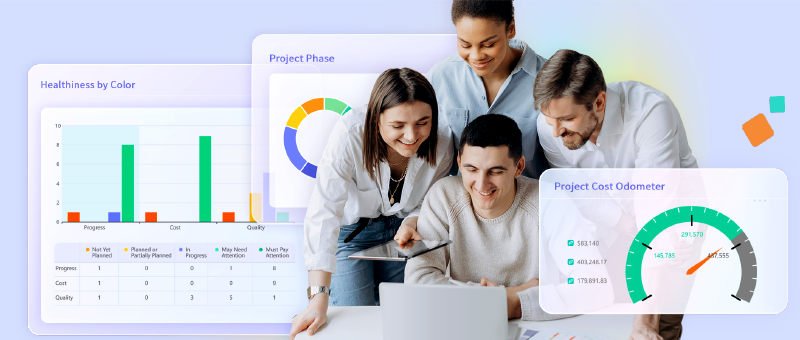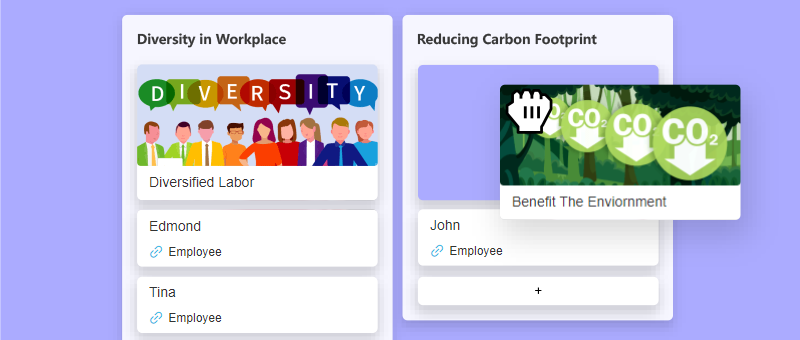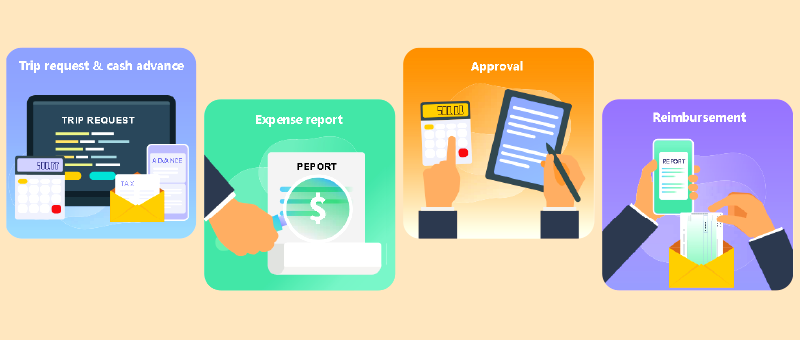Real Estate Development Project Mgt. Solution
Challenge
There are many potential pitfalls in the life cycle of a real estate development project. The project manager’s job is to ensure that the site runs smoothly and safely within the plan and the budget. Sometimes this is a very difficult thing to do.

According to one study, 98% of real estate development projects are over budget and 77% suffer significant delays.
What is causing these budget and delay issues? How should project managers prepare? Below are 6 typical challenges real estate development projects face and strategies aimed at proactively addressing them.
Project managers often set up safeguards for long-term risks, but often exclude short-term problems. These short-term issues can snowball quickly and start to have a material impact on the bottom line.
Whether it is an unreliable subcontractor, scheduling conflicts, or changing stakeholder tastes, any seemingly small issue can derail a project. Therefore, it is very important to make a contingency plan. Give your schedule some wiggle room and invest in programs like safety training to avoid these potential problems.
It is very difficult to get work done efficiently without clear goals. Real estate development projects can easily fall behind or over budget (or both) if people lack clear goals to achieve. Without these goals, it is hard to get people to fulfill their responsibilities in the project.
Performance management is an important aspect of project management. In order to achieve performance management and keep everyone focused on the task, they need to perform well-defined activities. Break down larger project-wide goals into smaller ones that everyone needs to accomplish on a daily basis. If something is not done one day, it will be merged into tomorrow. Hold employees accountable with set processes so you can avoid the entire project teetering in your hands.
Communication is an important tool in any industry, and it is especially important when work is delegated to different groups. Without clear and effective communication, important activities will be missed, and teams will be left in the dark about problems until it is too late to correct them. Therefore, project managers need to develop clear guidelines.
At the end of each day, communication needs to be moved up a ladder to keep the team aware of project progress or obstacles. This allows for proactive problem-solving. If face-to-face meetings are not possible, using a different type of software may be a good solution.
Customers and stakeholders can make some tricky requests. Whether they want the project to be completed faster or on a limited budget, their expectations can present some challenges. For sophisticated project managers, some requirements are possible but some are not. Setting unattainable goals can actually hinder productivity; why work overtime and wear yourself out when you cannot achieve your goals?
Some of these expectations are caused by poor forecasts. It is possible that such forecasts, like risk management, focus on the long term rather than the short term. Break these forecasts down into monthly, weekly, and daily goals to see if those goals are realistic. If necessary, communicate with stakeholders about these issues. Offer alternative plans so they can see an aggressive but achievable schedule or budget. Manage expectations from the start so you can build successful projects.
The real estate development business relies on invoicing, and sometimes an outdated system. If payments are delinquent, the system can negatively impact the company’s cash flow, which in turn can dry up funds for other projects, leading to project delays.
Therefore, the invoicing system needs to evolve. With improved software and adequate follow-up, real estate development companies can ensure that cash flow does not negatively influence other projects.
Real estate development is a reputation-based industry. People tend to work with people they know and trust. This is usually a great thing, and teams that know how to work together can be very effective. But when there is a skills gap in the team, it can lead to some delays.
The solution is to detect these skills gaps before they affect the project. Once you find gaps, you can fill them quickly and efficiently. The best way to do this is to find a recruitment consultant whose property development experts can quickly find the right professionals for you.
Real estate development projects contain many moving parts; project management software like 8Manage PM helps guide and align resources to integrate those parts into a coherent, financially profitable whole.
What sets a real estate project apart from any other field is the number of different components it involves. 8Manage PM can bundle various components, and effective planning increases the chances of successful project delivery.
The complexity of these components can have disastrous consequences for a project without using an advanced tool like 8Manage PM. While there are various methods for estimating the cost of a real estate project, the unit cost of the bill of quantities is the most ideal method. The easiest way to estimate is to break the project down into activities.
Once activities are defined and resources are assessed, their respective quantities will be mapped, followed by allocation unit costs. The costs incurred by each task are then added to determine the total cost. Various types of costs associated with resources can be expressed in terms of labor, materials, labor, and expenses. In real estate projects, construction costs are only a small part of the total project cost. These costs include design costs, bid costs, approval costs, and control costs.
The design of a real estate development includes preliminary design, general design and detailed design plans. Design is a very important part of a construction project, it gives direction to the scope of work. The detailed scope can be determined according to the detailed design and specification. Map baselines, scopes, projects, and workloads into this scope. While mathematical cost estimates are often based on actual measurements, such as floor area, capacity, or length, you can observe that costs do not always vary linearly.
Economies of scale and operational mismanagement do have an impact, causing the scope to apply to all construction projects. When mapping basic costs, it is also important for project managers to consider the joint costs involved. For an accurate estimate, the allocation of cost variances must be taken into account.
Project managers also should not forget that construction projects take 3-4 years to complete. Therefore, the cost index must be measured and thus aggregated into a price index, which can be tracked based on historical data. Since construction costs are incurred over 3-4 years, it is significant to determine cash flow.
Once all estimates are in place and the project begins, the next challenge for the project manager is to calculate the work completion rate. It is assumed that the costs incurred should be proportional to the amount of work done, but this does not apply to construction projects.
The calculation of the construction percentage must take into account the total value of the work completed to date and the work to be completed. 8Manage PM calculates the value of work, which is called earned value management. This is a systematic process for identifying project differences based on a comparison of performed and planned work.
8Manage PM considers cost and schedule to help make effective decisions for projects. It also assists project managers to derive performance indicators of cost and schedule. By reducing risk and enabling accurate project forecasting, the system avoids scope creep and increases visibility.

























































































































